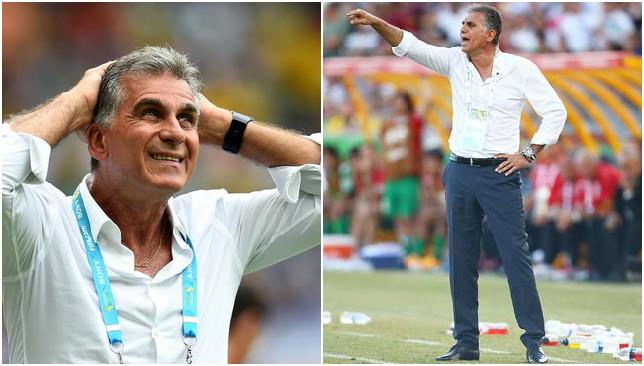
It was typical of Iranian football that Carlos Queiroz's last game as national team coach was a friendly against Sweden in Stockholm. During his four years in charge of Team Melli, the former Real Madrid boss had constantly called for more tests against strong international opposition. In end, he got his wish but it will be someone else who reaps the benefits even if fans fear such benefits may be lost as the popular, pragmatic and powerful coach departs.
– From Dubai to Dakar: Al-Duri chasing coaching dream with Ghana U-20s
The game ended 3-1 to the hosts though the Swedes only sealed the win in the final moments in the wake of Iranian aggression, It was the game four days earlier however that hinted at to just what the west Asians are now capable of. A 2-0 win over Chile in Austria was a fine result, one of the best by Iran for some time. Again, another coach will/may be in charge when the expected bump in the FIFA ranking for the continent's number one team is felt.
The Mozambique-born tactician arrived in the capital in 2011 with the mission of taking the team to the 2014 World Cup. This is why the Iranian Football Federation (IFF) paid a hefty salary that they were not always comfortable with, especially in those early days when it looked as if Brazil was not going to happen. Iran were sluggish in the first half of the final round of qualification, losing to Lebanon for the first ever time. With three games remaining, Queiroz switched things around, brought in Rahman Ahmadi in goal, made things extra tight at the back and looked to new striker Reza Ghoochannejhad to get the goals.
It worked, just. Three wins from the final three and no goals conceded. The best was a final qualifier showdown, a hard-fought bad-tempered clash in South Korea. The boss had spent the previous days taking the pressure off his men, enjoying a war of words with his Seoul-based counterpart who was less adept at the art. Whether it had an effect is hard to say, but the Iranians loved him for it, especially when qualification was achieved. In the bowels of Ulsan Stadium afterwards, Quieroz hugged anyone who came near while making sure that any praise coming his way was deflected in the direction of the players who, by then, would do anything for him.
If that was the high, Queiroz became frustrated over the next 12 months, watching the Koreans and the Japanese travel the world to play preparation games while he kicked his heels in the Middle East after training camps and friendlies were cancelled. It was to his, and the players' credit then, that Iran performed better than their Asian rivals in South America.
Drawing with Nigeria then drawing praise from all over the world for a last-minute and undeserved defeat against Argentina. The only disappointment was the tepid defeat at the hands of Bosnia. Yet, Iran had shown that despite the difficulties, the nation was capable of competing on the world stage. The painful memories of 2006 when a more talented team fell apart in the dressing room and then the pitch were banished. Under Queiroz, there were no factions, no dissent but unity, a single-minded purpose and a sense that all were working together -the usual stuff in usual football countries but Iran is rarely that.
More than most, Iran needs a foreign national team coach who can rise above the politics and the media nonsense but none before have had Queiroz's charisma and force of personality, all underpinned by an impressive CV. He didn't need the hassle that goes with the job and always had other options, and his bosses knew it.

Yet now he has gone from a federation concerned at his power and his pay-packet. The ex-Portugal boss says he has been forced out by the IFF forcing out younger stars, who had been making the step up to the senior team smoothly, Sardar Azmoun and Alireza Jahanbakhsh (concerns about an aging side had been alleviated to a large extent by the impressive performances of younger talent at the 2015 Asian Cup when Iran impressed but were unlucky to exit at the quarter-final stage), go and play for the Under-23 outfit. As always in Iran, there is more to it than meets the eye but four years in charge of Team Melli can be exhausting. For Queiroz, he is going to have plenty of offers elsewhere though the fall-out with the IFF over payment owed is likely to be protracted and messy.
For Iran, the future is uncertain. The country has always produced talent, has always had passion but has usually lacked the clear-eyed pragmatism, organisation and leadership that Queiroz possessed and projected. The team was united, the federation was relatively quiet, the media relatively sensible and the fans delighted. Now those four pillars that have such power are once again standing on unstable ground and again with plenty of influence over the expected domestic replacement.
Qualification for the 2018 World Cup starts in June. Most would agree that Iran's chances of going to Russia are a little smaller today than a month ago.